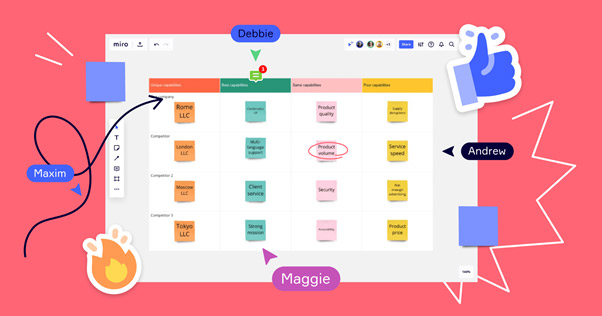How to Boost Your Website’s Visibility To Rank at Top of Google Search

How to Drive More Qualified Traffic with SEO Optimization
Are you looking to get your website seen by more people? Do you want your web pages to appear higher in search engine rankings? If so, understanding how search engine optimization (SEO) works is essential.
SEO is a set of strategies that helps improve website visibility and rankings in search engine results. By following the right strategies, you can boost your website’s performance in search engine results pages (SERPs).
Search Engine Optimization (SEO): What You Need To Know
When it comes to SEO, there are a variety of factors that affect how well your website performs in SERPs.

Some of these factors include the quality of your content, the structure of your website, and external signals such as inbound links.
Knowing how to properly optimize your web pages for search engine crawlers is key to improving rankings.
Utilizing Keywords For Better Rankings
Using keywords effectively is one way to improve SEO performance.
When used correctly, keywords can help search engine crawlers understand the content on your webpage and improve its ranking.
Finding the right keywords to use is important; however, it’s also essential to ensure that you don’t overuse them or stuff them into unnatural places within the content.
Technical Considerations for Improving SEO Performance
In addition to utilizing keywords, there are various technical considerations that can help improve your website’s SEO performance.

These include making sure you use proper page titles, URL structures, meta tags, and headings. Additionally, you should ensure that your pages are mobile-friendly and loading quickly.
Content Marketing and Link-Building Strategies for Higher Rankings
Creating high-quality content that is engaging to readers is an important part of improving SEO performance.
Content marketing involves creating and distributing regularly updated content on topics related to your website’s niche.
Link building, on the other hand, is a strategy used to obtain inbound links from other websites. Getting quality links from authoritative websites can help boost your website’s rankings.
Here are some link-building strategies.
Guest Blogging
Guest blogging is a popular content marketing and link-building strategy that involves writing and publishing blog posts on other websites.
By guest blogging, you can attract high-quality backlinks to your site, increase brand awareness and establish yourself as an expert in your niche.
Infographics
Infographics are a great way to present complex information in a visually appealing format. Infographics have proven to be highly shareable and they can generate a lot of links and traffic to your website.
Social Media Shares
Social media shares can help boost your website’s visibility, and they also provide an opportunity for others to share your content and link back to it.

Therefore, make sure you share your content regularly on all social media platforms.
Broken Link Building
Broken link building is a technique that involves finding broken links on other websites and replacing them with your content.
This strategy requires more effort, but it can provide a great opportunity to get high-quality backlinks that can help boost your rankings.
Create Expert Roundup Posts
Expert roundup posts are an excellent way to attract links, shares, and traffic to your website. By interviewing experts in your niche, you can create valuable content that people are eager to read and share.
Local Link Building
Local link building involves getting backlinks from local sites and directories. By getting listed on local directories, you can improve your chances of ranking well in local search results.

Create Long-Form Content
Long-form content often performs better in search engines because it provides more value to readers.
Typically, long-form content has more backlinks, which can help boost your rankings, so consider incorporating longer posts into your content marketing strategy.
Conduct Original Research
Conducting original research is another content marketing strategy that can help to attract links and shares.
By conducting research and producing statistics, you can create viral content that attracts backlinks and traffic to your site.
Skyscraper Technique
The Skyscraper Technique is a link-building strategy that involves finding popular content in your niche and creating something even better.
By creating longer, more in-depth content, you can attract links from sites that have linked to similar content in the past.
Content Repurposing
Content repurposing involves taking existing content and presenting it in a new format.

For example, you can turn a blog post into a video, create a webinar from an article or turn a series of articles into an e-book.
By repurposing content, you can expand your reach and attract links from new sources.
Analyzing Results to Monitor SEO Performance
To ensure that your SEO strategies are working, it’s important to analyze the results of your efforts.
There are various tools available for monitoring and analyzing SEO performance. These include Google
Analytics, Search Console, and Moz Pro. By using these tools, you can gain insights into your website’s performance and make necessary changes to improve rankings.
Conclusion
According to experts from SEO Singapore Services, ranking at the top of search engine results pages can be a difficult task, but it is achievable with the right SEO strategies. To maximize SEO performance, it’s important to use keywords appropriately, incorporate technical considerations, and create high-quality content.
Additionally, link-building and analyzing results can help boost your website’s rankings. With the right strategies in place, you can improve your website’s search engine performance. For more information on SEO strategies, check out https://www.seosingaporeservices.org/ to delve deeper into the subject.
How to Boost Your Website’s Visibility To Rank at Top of Google Search Read More »












